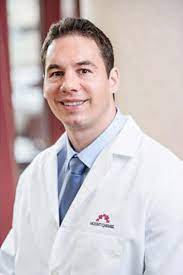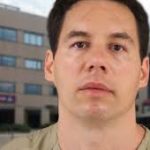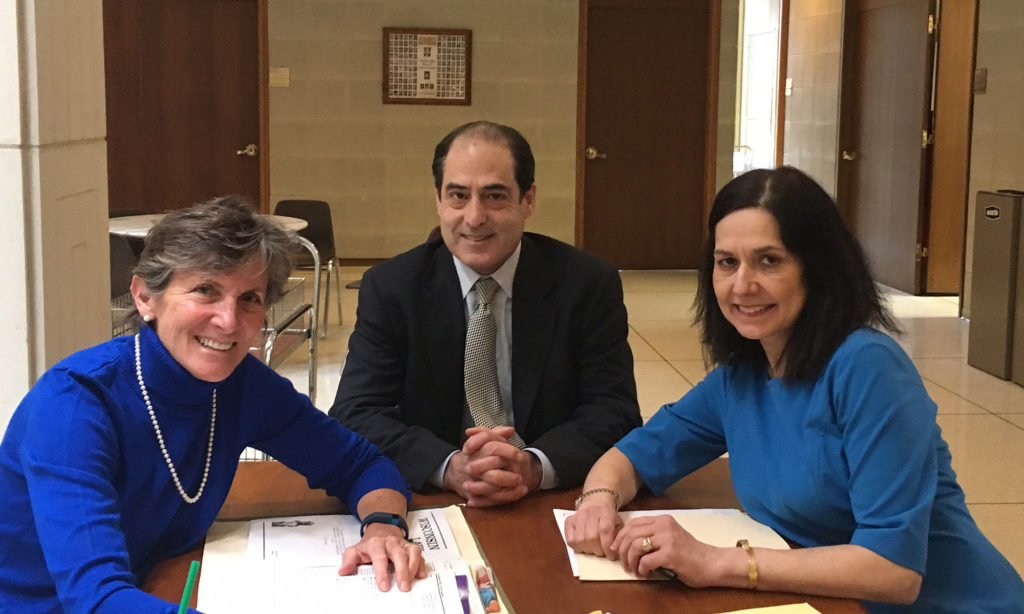Medical Paternalism on the Brink

Doctors have always enjoyed an undeniable prestige, an almost mystical clairvoyance and Solomonic judgment in the eyes of their patients. Doctors know the truth. Doctors know best. Doctors decide.
And yet a movement has been bubbling along for a generation or so, questioning their omniscience. Too many times, doctors have been proven wrong in their diagnoses; (after all, why ask for a 2nd opinion if they are all always right); assumptions have been contradicted by medical developments; or physicians have been shown to be all too human in falling for marketing hyperbole of the pharmas. (Anyone who hasn't seen Dopesick on the Oxycontin scandal and the Sackler family needs to stream it ASAP).
With regard to End of Life concerns, doctors are taught in Med School that death is the enemy, and that their goal is to keep the patient alive at all costs at all times. Choosing death even over a badly compromised quality of life is always the wrong decision, they are taught. Admittedly, there has been a sea change in this bias among the new generation of freshly minted physicians, and the advent of hospice itself is proof that there comes a time to accept the inevitable demise, and make the end as comfortable as possible, instead of jousting endlessly at distant windmills.
There are however still vestiges of a certain medical paternalism, behind which the AMA and the medical consensus continue to swagger. Two of those beliefs have recently and in quick succession come to grief when challenged in courts of law.
The first is the question whether a doctor or medical institution runs any legal risk if it ignores a patient's living will, advance directive for a DNR order, or the appointment of a healthcare proxy. What if the patient or his proxy makes clear they don't want extraordinary measures applied to keep them alive when the quality of that life will be too compromised.?
Historically, the courts have said no one can be punished for creating or preserving life. Life has been judged so uniquely enriching that it would be impossible to assess damages against one who acted to prevent death. So at times, it seems the medical profession could cavalierly ignore a patient's request to end life under certain debilitating circumstances.
A recent case in New York though has turned that assumption on its head. Greenberg v Montefiore a New York case asked whether an individual can recover damages when a doctor in direct contravention of an individual’s living will or health care proxy's instructions provides unwanted medical treatment.
Dr. Gerald Greenberg completed a living will and named his wife as his health care proxy with authority to make all medical decisions on his behalf. In his Advanced Directive, Dr. Greenberg made clear that in the event of irreversible brain damage, he did not want to be provided medical treatment beyond comfort care. He named his wife as his designated health care proxy.
Dr. Greenberg was subsequently diagnosed with advanced dementia incapable of making his own medical decisions, at which point his wife as his proxy had the legal authority to make binding medical decisions. In November 2016, Dr Greenberg developed sepsis and was transported to Montefiore Hospital. The hospital was provided with copies of his living will and health care proxy form appointing his wife. Ms. Greenberg instructed the hospital to only provide comfort care and no other treatment.
In complete and inexplicable contradiction to the express instructions of Dr Greenberg's healthcare proxy, the hospital proceeded to treat Dr. Greenberg’s sepsis, administering antibiotics and other curative treatments. As a result, Dr. Greenberg lived an additional 30 days in immense pain and suffering. He would otherwise have passed peacefully within a day or two.
Dr. Greenberg’s family subsequently filed a lawsuit on his behalf against the hospital for the unwanted medical treatment which caused a month of pain and suffering. The trial court dismissed the case, stating that Dr. Greenberg did not suffer any damages by being kept alive against his explicit wishes. The family appealed.
On March 31, 2022, a NY appellate court, in what is a precedent-setting decision, held that damages could be recovered against the hospital for acting in derogation of the patient's clearly expressed end of life wishes, as articulated by his healthcare proxy, leading to a month of unnecessary suffering. This may well be the first instance where a court gives teeth to an advance care document, and establishes that they are legally enforceable with monetary remedies for those who ignore them. The NY Supreme Court found that the Hospital was guilty of medical malpractice.
This is no small potatoes. There are countless instances when medical clinicians or instituons take their patients advanced directive with a grain of salt. After all, their ethos has always been life is always so precious that it is better than death, even if that life is compromised with suffering and indignity, and even when the patient themself welcomes death as a reprieve.
Advanced directives, DNR orders, medical powers of attorney are not just documents to be followed when the doctor is in agreement . The patient always has the final say as to their end of life preferences. At least in New York, doctors and institutions are now on notice that ignoring such documentation is now longer acceptable under the rubrid "Doctor Knows Best"-- rather it constitutes medical malpractice.
Another case has equally broken a lot of china. One of the dirty little End of Life secrets is that not infrequently doctors are the direct instruments of hastening a sought-for death. It is inevitable that when patients in hospital continue to suffer as the end approaches, doctors are at liberty to provide comfort in the form of morphine. They may in fact apply a dosage so strong it not only arrests the pain, but provokes death. In any other context, we would simply call this what it is: euthanasia. A good death; a peaceful death; a death which hastens the inevitable without forcing the patient and their family to prolong their suffering unnecessarily
Contrary to the benevolent intensions involved, euthanasia is deemed murder in every state in America and a doctor could technically be charged and prosecuted. Furthermore, the AMA and the Catholic Church are adamant that euthanasia is anathema, that choosing death over life is prohibited. The way around the conundrum is the handy fig leaf called "Double Effect." The intent is not to kill the patient; the intent is to alleviate suffering, even if, with a wink and a nod, everyone knows the applied dosage will either kill the patient outright or put them into a coma.
Doctors who rail against MAID which would allow a patient to avoid incalculable suffering when the end is nigh are perfectly comfortable taking matters in their own hands to apply a fatal dosage when the patient is in extremis. And people who are outraged that a doctor might write a prescription for a terminally ill, mentally competent patient allowing them to take the medicine at home at the time of their choosing are comfortable ceding that authority to a doctor, who may well be acting on his own cognizance, while in a medical facility like a hospital.
Now, one must keep in mind that the whole quest of advocates for MAID is to allow the patient themselves to be able to hasten their own much sought death when faced with a terminal diagnosis. Two thirds of the states, the AMA and the Catholic Church all vehemently deny a patient the right to control their own end of life. And yet those states, the AMA and the Catholic Church all stand firmly behind the doctor who applies a lethal dose of morphine to a dying patient under the camouflage of double effect-- as useful a circumlocution as possible. The doctor is not willing the patient's death; no, of course not; the doctor merely wants to minimize or stop the patient's suffering. If the patient (predictably) slips into a coma from which he never recovers or simply expires, well, the doctor has the fig leaf that his goal was not death, but to avoided suffering.
This is know as terminal sedation It is a blessing for the dying, their family and friends. The last few hours or even days of excruciating horror are averted by the benevolence of what is essentially euthanasia : a good death. No one seems bothered that it is the doctor who directly administers the proximate cause of death, usually, but not necessarily, with the patient's or their family's consent.

In Ohio, Doctor William Dr William Husel, 46, of Mount Carmel Health Systems in Columbus followed standard medical and ethical procedure in administering fentanyl to patients approaching death to alleviate their suffering. The patients quickly died. The doctor believed he was conforming to the principle of the famed double effect. He was widely admired and respected at his hospital, and had received various awards.

But the local DA decided to charge him on 14 counts of murder. He was indicted in cases that involved at least 500 micrograms of the powerful painkiller fentanyl.
Prosecutors said ordering such dosages for a nonsurgical situation indicated an intent to end lives. Husel's attorneys argued he was providing comfort care for dying patients, not trying to kill them. The prosecution introduced 53 witnesses; the defense just one. The jury acquitted after 6 days on all counts. However, the doctor and several of his assistants lost their jobs and they and Mt Carmel Health are being pursued in civil court by aggrieved relatives.
And yet what Dr Husel was impugned for happens all the time in medical facilities, and is understood to be the blessing of which no one shall speak. A person is not just terminal, but is in the process of expiring. There may be days, maybe just hours, of unbearable suffering before the inevitable. Let the doctor administer a sufficient dosage of morphine to alleviate the pain-- and perhaps the dosage will hasten the death.
There are surely thousands of doctors who have done exactly what Dr Husel was prosecuted for. And all it takes is one creative or motivated District Attorney to rain disgrace on that doctor by charging them with murder. In any other country, the practice is simply called euthanasia. In America, it can now lead to a life sentence.
What do these two cases have in common? In both instances, the standard operating procedure of medical professionals has been brought into question, with potentially career-ending consequences. In Greenberg v Montefiore, the court ruled that a patient's Advanced Directive must be respected, even if it calls for preferring a quick death to a lingering end of suffering. In Dr Husel's case, the practice of allowing doctors to hide behind the fig leaf of double effect was not enough to prevent a prosecution for murder. One must now wonder if doctors will be reluctant to alleviate suffering at end of life in hospitals and nursing homes for fear of just such a prosecution.
Doctors are overwhelmingly benevolently minded. They mean to do good. They earnestly believe life is always better than death and they believe they know what is best for the patient. But we are living in an era where patients demand to take control of their medical conditions, and that applies equally to their end of life wishes. This is ultimately what MAID offers: allow patients to make that final decision by giving them the wherewithal to hasten the inevitable and avoid days, weeks, perhaps months of futile, useless suffering.


